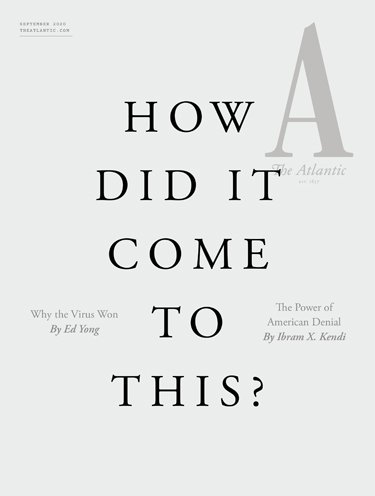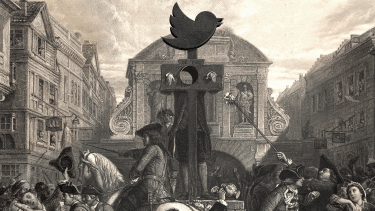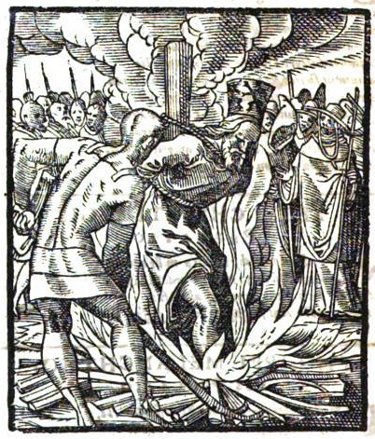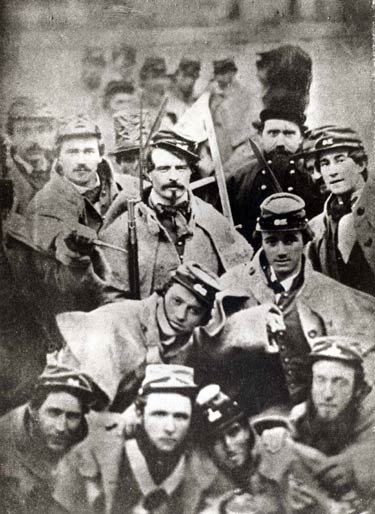Category Archive 'The Atlantic'
18 Jan 2022


Commentary’s Christine Rosen finds puzzling the Atlantic’s current obsessive dooming-and-glooming. Why is the American Establishment wallowing in self pity all the time?
The Atlantic is one of the most prestigious magazines in the nation—and almost certainly its most lavishly funded. When Laurene Powell Jobs (whose net worth is approximately $22 billion) bought former owner David Bradley’s stake in the magazine in 2017, she ushered in an era of almost unimaginable expansion for a publication created before the Civil War. Under its editor, Jeffrey Goldberg, the Atlantic has added 100 new staff jobs. The once-staid monthly is now a round-the-clock Web content provider that releases dozens of new items a day.
The Atlantic’s prominence and seriousness—and the bottomless pockets of its multibillionaire owner—have made it a dream come true for literally hundreds of liberal American journalists who spent most of the past 20 years in a panic about the financial viability of their chosen profession. So why is the Atlantic an emotional train wreck of a publication? If the New Yorker’s annual cover model, the monocle-bearing dandy Eustace Tilley, is supposedly its personification, the Atlantic’s should be Munch’s Scream. …
The Atlantic reader who visits the website rather than simply journeying there through social-media links is turned into a doom-scroller, confronted time and again as she journeys down the homepage with headlines like this one: “America Is Running Out of Time.” Note how the title lacks specificity; it doesn’t need specificity, because this is what nearly every article in the Atlantic is about. (A recent feature in the January/February print issue of the magazine was titled, simply, “Are We Doomed?”)
“Bring Back the Nervous Breakdown,” urged a 2021 article. And so Goldberg’s Atlantic has. An astonishingly large number of stories in both the print and online versions of the magazine now focus on the irrational feelings of a very particular and privileged class of people—elite, left-of-center, educated people who ironically believe themselves too sophisticated to be emotionally manipulated like the unwashed Fox-viewing masses they abhor.
Pieces like Ian Bogost’s essay “I’m Starting to Give Up on Post-Pandemic Life” typify the Atlantic’s panic porn—the titillating personal account of a distorted negative emotional experience described lubriciously with no observable larger social purpose. “Even if this strain is less bad than it might have been,” he writes of the Omicron variant, “only dumb luck will have made it so. That’s neither victory nor a sign that the emergency is over.” He then spirals into despair: “The coronavirus was once ‘novel’ because it was new. Now it feels both ancient and eternal. Having endured the emergence of two major strains even since the rollout of vaccines, a difficult thought is planted in my head: What if the pandemic never ends?”
This Eeyore-meets-Nietzsche tone now dominates much of the magazine’s coverage.
RTWT
02 Sep 2021


Anne Applebaum is an unusual establishment intellectual. She’s an American Jewish graduate of Yale married to the Polish nobleman and Oxford graduate Radek Sikorski, a Center Right politician who has been Foreign Minister and various other things in post-Soviet Free Poland.
Applebaum consequently is solidly in opposition to the Totalitarian tyranny and mass genocide of the last century in Central Europe, but her Jewish Liberal and American Ivy League Establishmentarian identities are equally strong. She writes for the enthusiastically radical leftist these days Atlantic. She has broken with many former conservative friends over their support for Nationalist Populism in Poland, Hungary, and the United States.
She loudly condemns Viktor Orbán and Donald Trump, but she generally gives the Revolutionary Left and their elite enablers a total pass.
So, it’s interesting to find her, in the Atlantic no less, taking a stand against the current Cancel Culture Reign of Terror.
Her critique is pretty good, though I did think her efforts to dissociate all this from Leftism generally constituted pure Denial in its saddest form, and her studied efforts to identify equivalent speech suppression originating from the Right (Project Veritas!) smelled just a bit of desperation. “In this (relatively trivial) incident (which I for one had never heard of), the storm came from the right, as it surely will in the future: The tools of social-media mob justice are available to partisans of all kinds.”
Except “partisans of all kind” do not control Hollywood, Disney, Amazon, Netflix, CNN, NBC, Time, Newsweek, ESPN, the NFL, the NBA, the New York Times, the Washington Post, all the rest of the Establishment Media. “Partisans of all kinds” do not make the policies or conduct the kangaroo courts at Harvard, Yale, and all the rest of the colleges and universities. “Partisans of all kinds” do not get to ban opponents on the Left from Twitter, Facebook, Instagram, and YouTube. Only the Puritan Left does.
Actually, she needs to be careful herself. The left-wing mob ran Matt Taibbi and Andrew Sullivan out of cushy Establishment positions. There is no reason to suppose that they will not go after her, too.
Students and professors, editorial assistants and editors in chief—all are aware of what kind of society they now inhabit. That’s why they censor themselves…”
“… why they steer clear of certain topics, why they avoid discussing anything too sensitive for fear of being mobbed or ostracized or fired without due process…. Many people have told me they want to change this atmosphere, but don’t know how. Some hope to ride it out, to wait for this moral panic to pass, or for an even younger generation to rebel against it….
Anonymous reports and Twitter mobs, not the reasoned judgments of peers, will shape the fate of individuals. Writers and journalists will fear publication. Universities will no longer be dedicated to the creation and dissemination of knowledge but to the promotion of student comfort and the avoidance of social-media attacks. Worse, if we drive all of the difficult people, the demanding people, and the eccentric people away from the creative professions where they used to thrive, we will become a flatter, duller, less interesting society, a place where manuscripts sit in drawers for fear of arbitrary judgments. The arts, the humanities, and the media will become stiff, predictable, and mediocre….
There will be nothing to do but sit back and wait for the Hawthornes of the future to expose us.”
RTWT (Outline.com will fork if you get paywalled.)
24 Aug 2020


Jemele Hill, staff writer, The Atlantic.
————————————
You can see below just how terribly the racist American genocidal regime has treated Jemele.
October 1, 2018:
Journalist Jemele Hill is joining The Atlantic as a staff writer, The Atlantic’s editor in chief Jeffrey Goldberg and editor of TheAtlantic.com Adrienne LaFrance announced today. She begins with The Atlantic next week.
Hill will be covering issues related to sports, race, politics, and culture for both the magazine and TheAtlantic.com. She will be based in Los Angeles, where The Atlantic is establishing a second California bureau after opening an office in San Francisco this summer.
“Jemele is a wonderfully talented journalist who is famous for her acute commentary, fearless writing and encyclopedic knowledge of sports,†said Goldberg. “But what drew us to Jemele in particular is her deep commitment to reporting. There are a million stories to be uncovered at the intersection where sports, race, money and politics meet, and Jemele is the exact right person to do this uncovering, and The Atlantic is the exact right home for this sort of journalism.â€
“The Atlantic made perfect sense to me because during this period, it’s critical to be aligned with people who understand this mission: Sports is a great entry point for exploring what’s happening in the wider society,†said Hill. “You can’t talk about sports without talking about race, class, gender and politics. I want to explore the complications and discomforts with a publication that has a long history of supporting this kind of work.â€
In her nearly 12-year career at ESPN, Hill rose to fame for her exceptional coverage on the air and for ESPN.com. She was a columnist, a host of “SportsCenter,†and a college football sideline reporter. Most recently, she covered the intersection of sports, culture, and race for ESPN’s The Undefeated.
Hill began her journalism career at the Raleigh News & Observer before moving back to her hometown to cover sports for the Detroit Free Press, and later the Orlando Sentinel. She joined ESPN in 2006.
Frankly, instead of being employed in highly-paid, prestigious establishment positions as commentators and editorialists, I’d contend that people this delusional ought to be netted and taken away to the laughing academy where their excessively rich fantasy lives will no longer pose a danger to themselves or anybody else.
21 Apr 2018


Kevin Williamson discusses his short career at The Atlantic.
In early March, I met up with Jeffrey Goldberg, the editor in chief of the Atlantic, at an event sponsored by the magazine at the South by Southwest conference in Austin. He had just hired me away from National Review, the venerable conservative magazine where I’d been a writer and editor for 10 years.
“You know, the campaign to have me fired will begin 11 seconds after you announce that you’ve hired me,†I told him. He scoffed. “It won’t be that bad,†he said. “The Atlantic isn’t the New York Times. It isn’t high church for liberals.â€
My first piece appeared in the Atlantic on April 2. I was fired on April 5.
The purported reason for our “parting ways,†as Mr. Goldberg put it in his announcement, had nothing to do with what I’d written in my inaugural piece. The problem was a six-word, four-year-old tweet on abortion and capital punishment and a discussion of that tweet in a subsequent podcast. I had responded to a familiar pro-abortion argument: that pro-lifers should not be taken seriously in our claim that abortion is the willful taking of an innocent human life unless we are ready to punish women who get abortions with long prison sentences. It’s a silly argument, so I responded with these words: “I have hanging more in mind.â€
Trollish and hostile? I’ll cop to that, though as the subsequent conversation online and on the podcast indicated—to say nothing of the few million words of my published writing available to the reading public—I am generally opposed to capital punishment. I was making a point about the sloppy rhetoric of the abortion debate, not a public-policy recommendation. Such provocations can sometimes clarify the terms of a debate, but in this case, I obscured the more meaningful questions about abortion and sparked the sort of hysteria I’d meant to point out and mock.
RTWT
07 Apr 2018


I think Jonah Goldberg did the best job of putting Kevin Williamson’s rapid firing by The Atlantic (after a single editorial) in the appropriate perspective.
Michael Anton, who penned “The Flight 93 Election†back when he was hiding behind a pen-name, articulated very well in an exchange with me what millions of conservatives believe to be true:
The old American ideal of judging individuals and not groups, content-of-character-not-color-of-skin, is dead, dead, dead. Dead as a matter of politics, policy and culture. The left plays by new rules. The right still plays by the old rules. The left laughs at us for it — but also demands that we keep to that rulebook. They don’t even bother to cheat. They proclaim outright that “these rules don’t apply to our side.â€
I disagree with Anton’s prescription — to surrender to identity politics and cheat the way our “enemies†do — but I cannot argue much with this description of a widespread mindset. Many on the right are surrendering to the logic of the mob because they are sick of double standards. Again, I disagree with the decision to surrender, but I certainly empathize with the temptation. The Left and the mainstream media can’t even see how they don’t want to simply win, they want to force people to celebrate their victories (“You will be made to care!â€). It isn’t forced conversion at the tip of a sword, but at the blunt edge of a virtual mob.
I could go on for another 2,000 words about all of the double standards I have in mind. But let’s stick with the subject at hand: Kevin Williamson’s views on abortion put him outside the mainstream. And he was fired from The Atlantic merely for refusing to recant them.
Meanwhile, extreme views on the left are simply hot takes or even signs of genius. Take the philosopher Peter Singer. He has at least as extreme views on a host of issues, and he is feted and celebrated for them. He is the author of the Encyclopedia Britannica’s entry on “Ethics.†He holds an endowed chair at Princeton. He writes regularly for leading publications. And he argues that sometimes it’s okay to kill babies, as in his essay “Killing Babies Isn’t Always Wrong.†“Newborn human babies,†he writes, “have no sense of their own existence over time. So killing a newborn baby is never equivalent to killing a person, that is, a being who wants to go on living.†He cutely asks whether people should cease to exist. (He ultimately and grudgingly answers “No.â€) Oh, he also argues in favor of bestiality.
And he’s been profiled favorably in the pages of The Atlantic.
And that’s okay. I can’t stand his utilitarian logic-chopping and nihilistic view of humanity, but at least going by Nock’s Ark of the Covenant rules, he should be free to make his arguments anywhere willing editors want to publish them. We have a right to be wrong.
But that’s not the point: Singer’s work does not render him anathema in elite circles, it earns awards, praise, and celebration for its ruthless consistency and edgy provocation. He is not fired for what he writes never mind what he thinks. I have no doubt some people don’t think this is a perfect example of a double standard, and I could come up with some objections to it myself. But if you can’t see why some people — fellow American citizens — see it as a glaring double standard, you are part of the problem.
Kevin was hired by The Atlantic because he is among the best of the homeless conservatives in the Trump Era. That’s why Bret Stephens went to the New York Times, and it’s probably why I’ve gotten my share of strange new respect from some liberals. But what Goldberg — or his boss — and countless others fail to appreciate, I think, is that the Trump Era is merely one facet of the larger age of tribalism that we live in. In an age when evangelical Christians and constitutional conservatives can overlook the sins of a Roy Moore, it’s easy to see how people could mistake a Trump critic as a useful voice in their chorus. But Kevin isn’t one of them. He sings from his own hymnal and he stands athwart the tribalisms of Trumpism and the tribalisms that gave us Trump. He is in The Remnant (which Nock described in, of all places, The Atlantic). And I am honored to be a happy warrior by his side, hopefully at National Review once again.
RTWT
It seems to me that The Atlantic disgraced and embarrassed itself so badly that it really did far more damage to itself than to Kevin Williamson.
01 Sep 2015


The hadj will now culminate at a glowing crater.
Last Saturday, the left-wing British Guardian launched a full-scale marginalizing and discrediting attack on William C. Bradford, an assistant law professor teaching at the US Military Academy at West Point.
The attack on Bradford was occasioned by his publication of an academic paper last April which made a couple of colorful and controversial proposals.
An assistant professor in the law department of the US military academy at West Point has argued that legal scholars critical of the war on terrorism represent a “treasonous†fifth column that should be attacked as enemy combatants.
In a lengthy academic paper, the professor, William C Bradford, proposes to threaten “Islamic holy sites†as part of a war against undifferentiated Islamic radicalism. That war ought to be prosecuted vigorously, he wrote, “even if it means great destruction, innumerable enemy casualties, and civilian collateral damageâ€.
Other “lawful targets†for the US military in its war on terrorism, Bradford argues, include “law school facilities, scholars’ home offices and media outlets where they give interviews†– all civilian areas, but places where a “causal connection between the content disseminated and Islamist crimes incited†exist.
“Shocking and extreme as this option might seem, [dissenting] scholars, and the law schools that employ them, are – at least in theory – targetable so long as attacks are proportional, distinguish noncombatants from combatants, employ nonprohibited weapons, and contribute to the defeat of Islamism,†Bradford wrote. …
[A] clique of about forty†scholars, Bradford writes, have “converted the US legal academy into a cohort whose vituperative pronouncements on the illegality of the US resort to force and subsequent conduct in the war against Islamism†represent a “super-weapon that supports Islamist military operations†aimed at “American political will†to fight. They are supported by “compliant journalists†marked by “defeatism, instinctive antipathy to war, and empathy for American adversariesâ€, but Bradford considers the lawyers a greater threat.
The offending legal scholars “effectively tilt the battlefield against US forces [and] contribute to timorousness and lethargy in US military commandersâ€, he writes. They are among several “useful idiots†who “separate Islam from Islamists by attributing to the former principles in common with the West, including ‘justice and progress’ and ‘the dignity of all human beings’â€. …
The West Point faculty member urges the US to wage “total war†on “Islamismâ€, using “conventional and nuclear force and [psychological operations]â€, in order to “leave them prepared to coexist with the West or be utterly eradicatedâ€. He suggests in a footnote that “threatening Islamic holy sites might create deterrence, discredit Islamism, and falsify the assumption that decadence renders Western restraint inevitableâ€.
——————————
Bradford’s paper: Trahison des Professeurs: The Critical Law of Armed Conflict Academy as an Islamist Fifth Column
——————————
The Guardian’s hatchet job appeared on Saturday, and the next day Bradford was being bundled out the door of West Point, whose representatives were busily disavowing ever having known him.
Yesterday, the Guardian was gloating and finishing up a thorough job of carpet-bombing the heretic’s reputation.
‘Dr William Bradford resigned on Sunday,’ army lieutenant colonel Christopher Kasker, a West Point spokesman, told the Guardian on Monday. Bradford had taught five lessons for cadets in a common-core law course, from 17 to 27 August.
We are given to understand that Bradford is, naturally, some kind of complete crackpot and congenital liar. Bradford, you see, is alleged to have exaggerated his academical positions (never a problem in the case of University of Chicago Law Professor Barack Obama) and –with no actual proof– his military service.
——————————
The Atlantic also piled on, noting that the National Security Law Journal had decided to denounce Bradford’s paper as an “egregious breach of professional decorum” unworthy of publication, to repudiate it, and to publish a four-page denunciation of the Bradford paper by Jeremy Rabkin.
——————————
Rules for Radicals 13: “Pick the target, freeze it, personalize it, and polarize it.â€
04 Sep 2014


Ta-Nehisi Coates
Ta-Nehisi Coates sports one of those preposterous made-up African personal names, which is, I suppose, a vital fashion accessory for a fellow who makes his living as a professional angry black man.
TNC (as other writers often refer to him) is a college drop-out who (for some completely mysterious reason, what could it possibly be?) has managed consistently to fail upward. Starting in 2000, over a period of seven years, TNC was hired and then quickly fired by the Philadelphia Weekly, The Village Voice, and Time magazine in succession. Naturally, with a resume like that, the Atlantic was quick to hire him as national correspondent and senior editor.
At the Atlantic, TNC has a comfortable gig. When he doesn’t feel like turning in any copy, he simply posts a sign reading: “The Lost Batallion,” and that’s cool with his employers. They keep TNC on, despite his tendency to punt, because when he does write an article, he produces 200-proof, double-distilled racialist venom. Back in May, TNC argued for reparations to be paid to gentlemen of color like himself to compensate for “395 years of preferential treatment for white people” and an “early American economy built on slave labor.”
More recently, TNC has been off at Middlebury in Vermont studying French. His French lessons, you might suppose would be racially irrelevant, but you’d be wrong.
TNC, you see, finds learning French hard, and that is your fault, whitey!
There were years when I failed the majority of my classes. This was not a matter of my being better suited for the liberal arts than sciences. I was an English minor in college. I failed American Literature, British Literature, Humanities, and (voilà ) French. The record of failure did not end until I quit college to become a writer. My explanation for this record is unsatisfactory: I simply never saw the point of school. I loved the long process of understanding. In school, I often felt like I was doing something else.
Like many black children in this country, I did not have a culture of scholastic high achievement around me. There were very few adults around me who’d been great students and were subsequently rewarded for their studiousness. The phrase “Ivy League†was an empty abstraction to me. I mostly thought of school as a place one goes so as not to be eventually killed, drugged, or jailed. These observations cannot be disconnected from the country I call home, nor from the government to which I swear fealty.
For most of American history, it has been national policy to plunder the capital accumulated by black people—social or otherwise. It began with the prohibition against reading, proceeded to separate and wholly unequal schools, and continues to this very day in our tacit acceptance of segregation. When building capital, it helps to know the right people. One aim of American policy, historically, has been to insure that the “right people†are rarely black. Segregation then ensures that these rare exceptions are spread thin, and that the rest of us have no access to other “right people.â€
And so a white family born into the lower middle class can expect to live around a critical mass of people who are more affluent or worldly and thus see other things, be exposed to other practices and other cultures. A black family with a middle class salary can expect to live around a critical mass of poor people, and mostly see the same things they (and the poor people around them) are working hard to escape. This too compounds.
Rod Dreher read the same TNC article, and he, too, was a bit ticked off by TNC’s revolutionary racialist BS.
TNC goes on to draw some sort of black nationalist lesson from his summer at French camp, culminating in this line: “Sometimes you do need the master’s tools to dismantle his house.†OK. Whatever. Reparations scholarships to Middlebury for all!
I snark, but honestly, the idea that the enormous privilege of spending a summer studying a foreign language at a verdant Vermont college should conclude with a resolution to become even more of a militant race man is depressing. Exactly whose house will TNC be burning down as a result of the tools he acquired this summer at Middlebury? François Hollande’s? I don’t get it. I seriously don’t. Seems to me that learning French as a middle-aged American can only do one worthwhile thing: make you more of a humanist. TNC thinks it has done that for him, I guess. Recalling his past self, he writes:
I saw no reason to learn French because it was the language of the plunderers of Haiti.
I had to be a nationalist before I could be a humanist.
What does that mean? That he had to learn to love his people before he could love all the world? I guess I understand that, but if a rural white Southerner had the same thought, what would TNC think of him? I know good and well what the overclass that TNC spent his summer with would think of that Southern kid.
Anyway, it seems that TNC is, in fact, learning French because it was the language of the plunderers of Haiti. I don’t know how else to read his conclusion, referencing Audre Lorde’s line, that the meaning of his summer spent immersed in the language of Baudelaire, Racine, and Rimbaud is to be found in how it empowers him to resist white supremacy. That does not sound like power to me. That sounds like impoverishment.
He is part of the Establishment now. He writes for a well-respected national magazine, about things he enjoys. He takes summers to go to language camp to learn French. That’s great! Why is he such a sore winner?
TNC is a sore winner, of course, because that is actually his profession. TNC is a professional angry black man, employed by the elite editorial board of the Atlantic, sitting atop the heights of establishment American culture, to be a kind of in-house Caliban, to rant, to rage, to emote and accuse America generally in order to solidify and confirm that Atlantic editorial board’s claim to top-people-ship. If TNC were reasonable and rational, he might actually have to find a real job and meet editorial deadlines.
02 Jun 2014


Bye, bye, Ta-Nehisi Coates!
Now that Gay Marriage, on the basis of a series of fabricated popular opinion polls and even-more-shamelessly-fabricated judicial opinions, seems to be firmly established as a feature of American life, the Establishment media is competing to pick the next great liberal cause. Time Magazine plumped for Transgender Rights. The Atlantic, more conservatively, just allowed its house affirmative action senior editor to publish an interminable screed demanding reparations.
That editor, a fellow named Coates who affects the silly and pretentious Afro praenomen Ta-Nehisi, makes an essentially preposterous claim. His contention is that we all owe him money because the entire American economy and Capitalist System as we know is built upon the unremunerated contributions of black slaves prior to 1865.
There are a number of obvious problems with this theory. According to historian Eugene Genovese, the most authoritative student of the subject, during the Antebellum period, black slaves typically received a significantly larger share of the product of their production than did free laborers in the North.
Additionally, the economic contribution of black slaves was regional, overwhelmingly restricted to the agricultural and non-industrial South. Industrial America and modern American capitalism developed in the far more urban and populous North. The wealth of the South was ultimately sunk in the struggle for Southern Independence, and its economic assets, its modest industries, and its large agricultural economy was destroyed in the war. After the Civil War, the Southern states sank into provincial poverty and economic backwardness for most of a century.
If the South owed Black America anything, in 1865 it was bankrupt and in no position to pay. Congress, moreover, specifically repudiated all the debts of the late Confederacy.
The Northern States extinguished Slavery at the cost of more than 700,000 American lives, the equivalent of two and half percent of the entire population of the country, four years of war, and the expenditure of what would undoubtedly be trillions of today’s dollars in wealth. The entire record of history fails to disclose any equivalent example of so enormous an effort and so enormous a sacrifice of blood and treasure by any society for the benefit of another people. The absolutely incredible cost of the Civil War would be taken by any fair-minded person to wipe the slate clean for the entire nation, North and South.
Finally, of course, there is to be considered the obvious enormous distance of time, and the tremendous changes in American society and its population which have occurred in that century and a half since 1865. Few people living today actually even know the names of their ancestors who were living in 1865, let alone their circumstances.
For Mr. Coates to claim that America owes him, and others of his kind, for potential underpayments of wages to some great great grandfather is just ridiculous. Nor does his endless series of sob stories about bad real estate deals and segregation impress me very much.
I don’t think I owe Mr. Coates, or the rest of Black America, a damn thing. No members of my family ever set foot in this country before the mid-1890s, a full generation after slavery was extinguished. My Lithuanian ancestors settled in the Anthracite mining region of Northeastern Pennsylvania, where they enjoyed the distinctly white European privileges of digging coal, getting killed in cave-ins or gas explosions, and dying unusually young of Anthrosilicosis.
They probably would have discriminated against Mr. Coates’ ancestors, given the chance, but happily they were spared the moral burden of Black Segregation because there simply weren’t any blacks at all living in their part of the country.
Segregation would have seemed the natural order of things to my relatives, who self-segregated themselves by settling in Lithuanian communities, living in Lithuanian neighborhoods, building and attending Lithuanian churches and schools, shopping at Lithuanian butcher shops, and drinking in Lithuanian saloons.
We owned no slaves, oppressed no Negroes, denied them no public accommodations, and had nothing to do with them whatsoever. My family additionally, in generations gone by, enjoyed no particular white privileges denied to Mr. Coates’ family. I was the first member of my family to attend an elite college. My father had to leave school after the 8th grade and go to work. His father was dying of miner’s asthma and the family needed the money. My grandparents bought a house in Mahanoy City early in the 1920s. They paid it off in three years, having no more access to federal mortgage financing than Mr. Coates’ family and their peers.
But, I’m willing to be generous. I don’t believe I, or any other Americans, owe Mr. Coates anything, but let us bend over backwards to quiet his complaints and make him whole.
I agree with the philosophy expressed by Rupert Birkin, speaking for D.H. Lawrence in Women in Love:
The minute you begin to compare, one man is seen to be far better than another, all the inequality you can imagine is there by nature. I want every man to have his share in the world’s goods, so I can be rid of his importunity, so that I can tell him: “Now you’ve got what you want — you’ve got your fair share of the world’s gear. Now, you foul-mouthed fool, mind yourself and don’t obstruct me.
And what would appropriate reparation for Mr. Coates consist of?
Clearly, we need to remove all the burdens and oppressions heaped upon his shoulders by evil America and wicked European Civilization. We ought to restore to him everything he has lost. We should give Mr. Coates a spear, and grass skirt, and along with them a one-way ticket back to Africa. As part of the deal, of course, we’ll have to take away his shoes, his trousers, his personal computer, and his position as senior editor at The Atlantic. Good luck in Africa, Mr. Coates! Say hello to that panther there for me.

Christophe Fratin, Panther and Cubs Attacking an African Native, 1834, The Peabody Art Collection, Baltimore.
22 Dec 2013


Seven articles by George Cary Eggleston published in the Atlantic, June-December, 1874.
Part 1, The Mustering:
With all its horrors and in spite of the wretchedness it has wrought, this war of ours, in some of its aspects at least, begins to look like a very ridiculous affair, now that we are getting too far away from it to hear the rattle of the musketry; and I have a mind, in this chapter, to review one of its most ridiculous phases, to wit, its beginning. We all remember Mr. Webster’s pithy putting of the case with regard to our forefathers of a hundred years ago: “They went to war against a preamble. They fought seven years against a declaration. They poured out their treasures and their blood like water, in a contest in opposition to an assertion.” Now it seems to me that something very much like this might be said of the Southerners, and particularly of the Virginians, without whose pluck and pith there could have been no war at all worth writing or talking about. They made war upon a catch-word, and fought until they were hopelessly ruined for the sake of an abstraction. And certainly history will not find it to the discredit of those people that they freely offered themselves upon the altar of an abstract principle of right, in a war which they knew must work hopeless ruin to themselves, whatever its other results might be. Virginia did not want to secede, and her decision to this effect was given in the election of a convention composed for the most part of men strongly opposed to secession. …
Why, then, the reader doubtless asks, if this was the temper of the Virginians, did Virginia secede after all? I answer, because circumstances ultimately so placed the Virginians that they could not, without cowardice and dishonor, do otherwise; and the Virginians are brave men and honorable ones. They believed, as I have said, in the abstract right of any State to secede at will. Indeed, this right was to them as wholly unquestioned and unquestionable as is the right of the States to establish free schools, or to do any other thing pertaining to local self-government. The question of the correctness or incorrectness of the doctrine is not now to the purpose. The Virginians, almost without an exception, believed and had always believed it absolutely, and believing it, they held of necessity that the general government had no right, legal or moral, to coerce a seceding State; and so, when the President called upon Virginia for her quota of troops with which to compel the return of the seceding States, she could not possibly obey without doing that which her people believed to be an outrage upon the rights of sister commonwealths, for which, as they held, there was no warrant in law or equity.
She heartily condemned the secession of South Carolina and the rest as unnecessary, ill-advised, and dangerous; but their secession did not concern her except as a looker-on, and she had not only refused to be a partaker in it, but had also felt a good deal of indignation against the men who were thus endangering the peace of the land. When she was called upon to assist in reducing these States to submission, however, she could no longer remain a spectator. She must furnish the troops, and so assist in doing that which she believed to be utterly wrong, or she must herself withdraw from the Union. The question was thus narrowed down to this: Should Virginia seek safety in dishonor, or should she meet destruction in doing that which she believed to be right? Such a question was not long to be debated. Two days after the proclamation was published Virginia seceded, not because she wanted to secede, – not because she believed it wise, – but because, as she understood the matter, the only other course open to her would have been cowardly and dishonorable.
Read the whole thing.
15 Sep 2008


David Walker reports on how the Atlantic made a big mistake by hiring “a hardcore democrat” professional celebrity photographer to do the portrait shot of John McCain for their October issue cover.
Greenberg is well known for her highly retouched images of bears and crying babies. But she didn’t bother to do much retouching on her McCain images. “I left his eyes red and his skin looking bad,†she says.
After getting that shot, Greenberg asked McCain to “please come over here†for one more set-up before the 15-minute shoot was over. There, she had a beauty dish with a modeling light set up. “That’s what he thought he was being lit by,†Greenberg says. “But that wasn’t firing.â€
What was firing was a strobe positioned below him, which cast the horror movie shadows across his face and on the wall right behind him. “He had no idea he was being lit from below,†Greenberg says. And his handlers didn’t seem to notice it either. “I guess they’re not very sophisticated,†she adds.
The Atlantic didn’t select the diabolical looking McCain for its cover. Greenberg is hoping to license that image to some other magazine (she negotiated a two-week embargo with The Atlantic so she could re-license images from the shoot before the election).
Warned that the image is just the kind of thing that will stir up the anti-media vitriol in the conservative blogosphere, Greenberg said, “Good. I want to stir stuff up, but not to the point where I get audited if he becomes president.â€
That said, she goes on to explain that she’s thought about replacing McCain’s mouth with bloody shark teeth and displaying the image on a billboard with the message that the candidate is a bloodthirsty war monger.
Given her strong feelings about John McCain, we asked whether she had any reservations about taking the assignment in the first place.
“I didn’t,†she says. “It’s definitely exciting to shoot someone who is in the limelight like that. I am a pretty hard core Democrat. Some of my artwork has been pretty anti-Bush, so maybe it was somewhat irresponsible for them [The Atlantic] to hire me.â€
Walker thinks that Greenberg “delivered the image the magazine asked for—a shot that makes the Republican presidential nominee look heroic,” but just look at it.
The photo was taken at an angle ideal for highlighting the candidate’s jowls, sagging neck, and lighted so as to capture every line and blemish in his face. His face is surreally reflective and its overall color is kind of a metallic bronze, except where some nasty emphatic pink makes his nose look runny and his mouth obscene. I doubt McCain’s motor vehicle picture is any more unflattering.
One of the less loveable features of the American left is the way its members are so little inhibited by good manners, professionalism, or ordinary decency from injecting their own vicious, self-righteous, and santimonious partisan perspective into anything opportunity places within their reach. These kinds of cheap shots are a key reason the culture wars are bitter as they are.
Your are browsing
the Archives of Never Yet Melted in the 'The Atlantic' Category.
/div>

Feeds
|














